Identity Review | Global Tech Think Tank
Keep up with the digital identity landscape.
Smart home systems, representing a significant stride in technological advancements, are a sophisticated blend of appliances, devices, and systems that function collectively to automate and streamline everyday tasks within a residential setting. These integrated ecosystems of connected technologies, enabled primarily through the Internet of Things (IoT), provide homeowners with unparalleled control over their home environments, from energy management to security monitoring, and from ambient lighting to entertainment systems. The burgeoning popularity of smart home systems can be attributed to the convenience, efficiency, and security they offer, alongside a growing consumer desire for customization and interactivity. As society leans further into the digital age, the adoption of smart home systems is increasingly seen as a logical and accessible step toward a more connected, comfortable, and secure living experience.
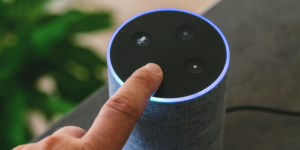
The Amazon Echo series of smart speakers form the bedrock of Amazon’s smart home ecosystem. Powered by Alexa, Amazon’s voice-controlled intelligent personal assistant, the Echo allows for seamless interaction with a multitude of compatible devices, providing a cohesive and user-friendly smart home experience.
Amazon Echo’s versatility and compatibility with a broad range of smart home products place it as a major player in the smart home field. By providing a centralized hub that responds to voice commands, Echo devices bring a level of convenience and control that is increasingly sought after in today’s connected home environment. It’s worth noting that while Amazon Echo provides a robust platform, the extent of its functionalities often depends on the specific devices you’re using and their compatibility with the Echo system.
Want to learn more about each system?
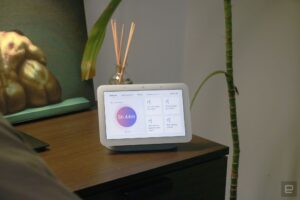
Google Nest, a key player in the smart home ecosystem, offers a broad array of products designed to seamlessly work together and provide a unified, intelligent home experience. Central to the system is Google Assistant, a voice-controlled AI platform that enables interaction with and control of these smart devices.
Through the integration of these products and many others, Google Nest provides a comprehensive solution for those seeking a unified and intelligent smart home system. Like Amazon Echo, the full functionality of Google Nest can be most effectively harnessed when using compatible devices within the Google ecosystem.
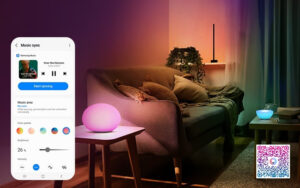
Samsung SmartThings is a versatile and comprehensive smart home platform that serves as a centralized hub to control a multitude of compatible smart devices, thereby providing a unified home automation experience. SmartThings has the advantage of broad compatibility, able to work with many smart devices from a variety of brands.
The beauty of Samsung SmartThings lies in its versatility and wide-ranging compatibility, allowing users to create a custom smart home ecosystem that best fits their needs and preferences.

Apple HomeKit serves as the backbone of Apple’s smart home ecosystem, providing a seamless and secure platform for controlling a variety of compatible smart devices directly from Apple devices. HomeKit stands out due to its deep integration with Apple’s product ecosystem, providing a familiar and cohesive user experience.
As with other smart home ecosystems, the specific features and capabilities of an Apple HomeKit setup can depend on the specific devices and how they’re configured. While HomeKit’s device compatibility isn’t as broad as some other platforms, it offers robust security, privacy, and ease of use, particularly for those who are already invested in the Apple ecosystem.

Philips Hue is a pioneer in the smart lighting industry, offering a comprehensive range of products including smart light bulbs, light strips, lamps, and fixtures. The strength of Philips Hue lies in its flexible lighting control, easy installation, and wide compatibility with other smart home systems.
Philips Hue is a versatile and customizable solution for those seeking to integrate smart lighting into their home. It provides a robust platform for creative lighting designs and automations, making it a popular choice among both smart home enthusiasts and those new to home automation.
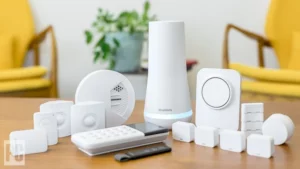
SimpliSafe is a well-regarded provider of do-it-yourself home security systems, known for its ease of use, flexibility, and affordability. The company offers a range of devices that cover the breadth of home security needs, making it an excellent choice for those seeking to secure their homes with a straightforward, user-friendly solution.
Overall, SimpliSafe offers a robust and user-friendly security solution that can accommodate a variety of needs and preferences. It’s a popular choice for those looking for an easy-to-install, comprehensive, and flexible home security system.
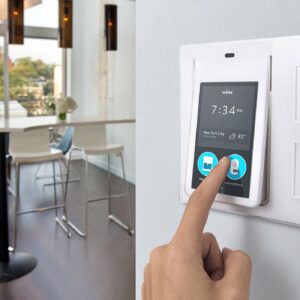
Wink is a smart home platform that provides a unified control center for a variety of smart home devices, serving as a bridge between different ecosystems. It is widely recognized for its wide compatibility and user-friendly approach to home automation, allowing users to integrate and control devices from various manufacturers using a single app.
While Wink provides a broad platform for home automation, it has faced some challenges in recent years, including a shift to a subscription-based model. As always, when considering a smart home platform, it’s important to verify that it supports the specific devices and features you need and is in line with your budget and other requirements.
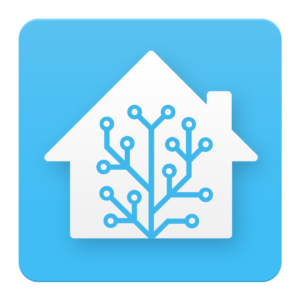
Home Assistant is an open-source home automation platform that puts privacy and local control at the forefront. Unlike most commercial smart home systems, Home Assistant runs on your own hardware and doesn’t rely on cloud services. This powerful and flexible platform integrates with over 1,000 different devices and services, enabling users to automate almost every aspect of their home environment.
Home Assistant represents a different approach to home automation – one where the user has ultimate control and flexibility. While it may be more complex to set up initially, its comprehensive compatibility and powerful automation capabilities make it a compelling option for tech-savvy users and privacy advocates.
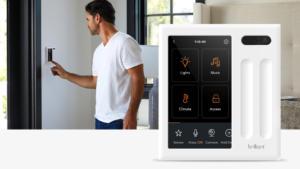
Brilliant is a smart home control system that primarily centers around its innovative in-wall touch-screen control panels. These panels replace traditional light switches and serve as centralized command centers for a wide array of smart home devices, enabling control of various home automation functions directly from the wall.
In essence, Brilliant is designed to be an easy-to-use, all-in-one smart home control system. It bridges the gap between disparate devices and gives users the ability to control all of their smart devices from one central location, or from wherever they are via the mobile app. It’s a sleek and elegant solution that enhances the decor of the home while providing comprehensive smart home control.
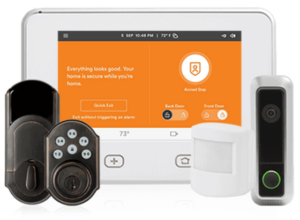
Vivint Smart Home is a comprehensive home security and automation system known for its professional installation and 24/7 monitoring services. As a premium, full-service provider, Vivint combines a wide range of smart home devices with an intuitive app, creating a singular, unified home automation and security ecosystem.
Vivint Smart Home is a robust, full-service home automation and security system. It’s particularly suited to those who prefer a professional installation and ongoing support, and who are looking for a comprehensive, integrated system that combines home automation with high-quality security features.
The rise of smart home systems represents a significant evolution in our interaction with the domestic environment. The companies discussed above are leading this transformation, each providing distinct offerings to cater to different needs and preferences. As we move forward, the ubiquity and sophistication of these platforms are poised to increase, driven by advances in technology and growing consumer demand for convenience, efficiency, and enhanced security. Smart home systems, once considered a luxury, are quickly becoming essential components of the modern home. They promise not only to enhance our comfort and convenience, but also to fundamentally redefine our living spaces, making them more responsive, personalized, and interconnected. The transition towards smart homes is a clear indication of how digital innovation is reshaping our everyday lives, providing exciting prospects for the future of home living.
ABOUT IDENTITY REVIEW
Identity Review is a digital think tank dedicated to working with governments, financial institutions and technology leaders on advancing digital transformation, with a focus on privacy, identity, and security. Want to learn more about Identity Review’s work in digital transformation? Please message us at team@identityreview.com. Find us on Twitter.
RELATED STORIES